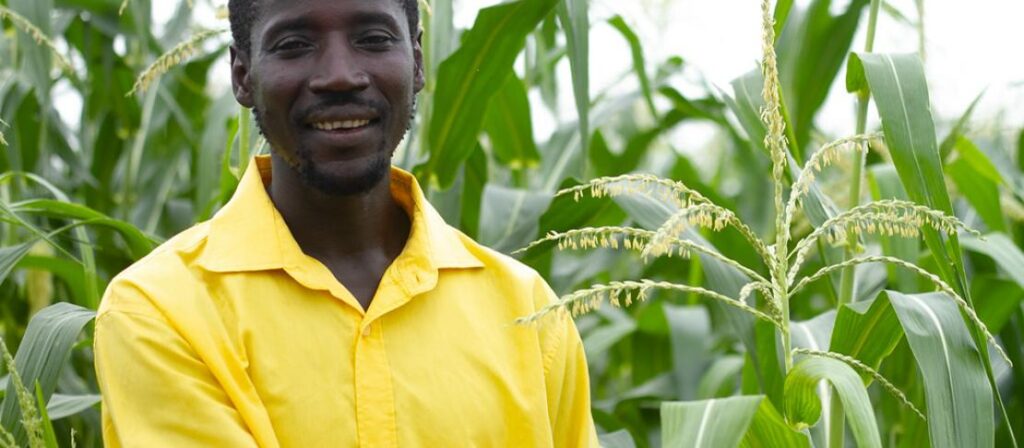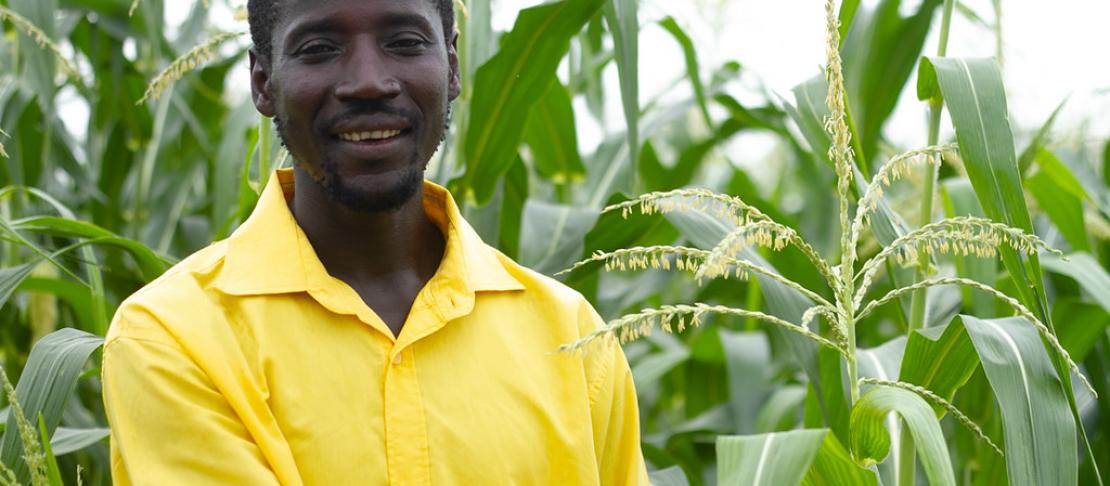
— According to the Food Crisis Prevention Network, a record 18.6 million people are currently in need of food assistance in West Africa. While urgent and immediate humanitarian action is necessary to protect vulnerable populations, a new World Bank and FAO publication offers fresh thinking for dealing with both the challenges and opportunities resulting from accelerating long-term trends including climate change, growing populations, urbanization, changing consumption habits and technological advances.
With its results being collectively owned by key regional institutions, including the Economic Community of West African States (ECOWAS), the Permanent Interstate Committee for drought control in the Sahel (CILSS), the West and Central African Council for Agricultural Research (CORAF), and the CGIAR Research Program on Climate Change, Agriculture and Food Security (CCAFS), the report titled “A Blueprint for Strengthening Food System Resilience in West Africa: Regional Priority Intervention Areas” reflects a broad consensus across regional stakeholders.
The report identifies three interconnected priority areas for simultaneous intervention at regional level that are critical to provide West Africans with sufficient, affordable, and nutritious food in the medium to longer term: strengthening the food system’s productive base, by promoting climate smart agriculture at farm and landscape levels; promoting an enabling environment for intra-regional value chain development and trade facilitation, and enhancing regional risk management architecture and farmers’ decision support tools.
For each intervention area, the report proposes a set of regional flagship initiatives, with specified sets of activities, delivery mechanisms, roles for partners and other operational aspects. A highly interactive virtual stakeholder conference bringing together 400 participants from across West Africa critically informed the identification of these initiatives. Selected examples include:
- Accelerating the evolution of the regional agricultural innovation system by building on the foundations laid by the West African Agricultural Productivity Program (WAAPP), by developing regional expertise in cross-cutting areas such as mechanization and natural resources management to complement the existing network of specialized institutions;
- Establishing a regionally owned scorecard mechanism on countries’ performance on trade policy implementation within the ECOWAS sub-region to increase countries’ mutual accountability and set incentives to reduce persisting barriers to agri-food trade and expand market opportunities for producers and traders alike; and
- Strengthening institutional capacity and public-private engagement to provide farmers with tailored agronomic advice and weather information, by making use of the exploding coverage of digital technologies in the region.
Several flagship initiatives are already earmarked for possible financing through operations currently under preparation, most notably the proposed West Africa Regional Food System Resilience Program (FSRP) to be funded by the World Bank. Other partners are expected to come on board to finance other regional flagship initiatives.
”Thanks to a strong track record of regional and international cooperation, West Africa has been remarkably successful in mitigating food crises that weather, health and economic shocks have caused. This said, there is an acute need for dedicating more financial and human resources to address long-term challenges to food security such as rapidly rising food demand, climate change and environmental degradation.”
Alain Sy Traoré, Director of Agriculture and Rural Development of the ECOWAS Commission
”The spread of digital technology across West Africa has the potential to accelerate the region’s progress towards reaching the resilience targets of the African Union. For example, improving digital early warning systems and agrometeorological advisory tools could enable many producers that are currently underserved by the existing agricultural extension systems to better adapt to increasing weather variability.”
Dr. Souleymane Ouedraogo, Chief Executive, CILSS/AGRHYMET
”An unprecedented convergence of disruptors is increasingly affecting West Africa’s food and agriculture sector along the entire value chain. The region faces the double challenge of maintaining its ability to respond to immediate food security needs while also stepping up its efforts to build preparedness for future shocks through sufficient foresight.”
Dr. Abdou Tenkouano, Executive Director, CORAF
”The COVID-19 pandemic has exposed fragilities in West Africa’s food system but concerted efforts to promote its recovery provide a unique opportunity for empowering the region’s food system to deliver sufficient and nutritious food for all. Key actions include (1) taking advantage of increased food system investments during COVID-19; (2) adopting innovations such as climate-smart agriculture; (3) making regional trade policies more equitable; (4) investing in early warning systems and; (5) ensuring a healthy agricultural workforce.”
Dr. Robert Zougmoré, Africa Program Leader, CGIAR/CCAFS
”Future interventions should continue to include much needed productive investments at farmer level, but also pay more attention to downstream value-chain segments. Adopting an integrated food systems approach and building on the local knowledge and experience of diverse categories of stakeholders, including small scale farmers and their organizations and Micro, Small, Medium Enterprises (MSMEs), will help to achieve more lasting resilience gains.”
Alberta Mascaretti, Chief of Africa Service, FAO Investment Centre
”Enhancing agriculture productivity and food system resilience is key to mitigate future shocks in the region. This requires: (i) substantial investments in climate-smart agriculture technologies, inputs, and capital; (ii) accelerating the use of digital innovations that can help smallholders to cope with future crises; (iii) developing market infrastructure enabling the region to benefit from production increases; and (iv) increased private capital mobilization to promote agribusiness and drive sustainable long-term sector growth.”
Chakib Jenane, World Bank Food and Agriculture Practice Manager for West and Central Africa
Contacts
At the World Bank: Aby K. Toure, (202) 473-8302, akonate@worldbank.org
At the FAO: Investment-Centre@fao.org
